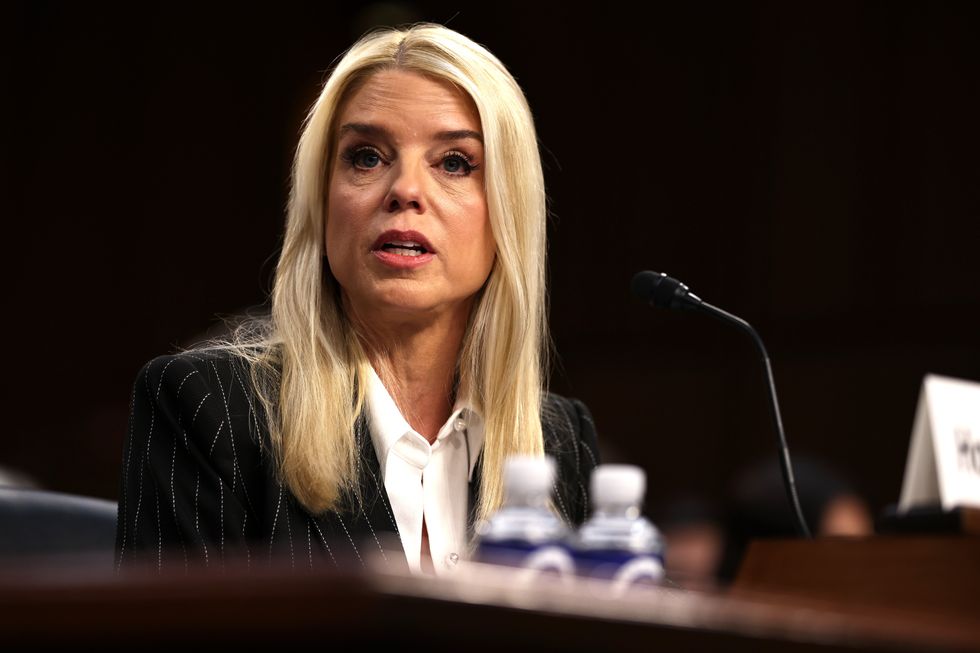3 Crucial Ways to Avoid Poverty Should Be Taught in Schools
Americans have forgotten how to form families. The Congressional Budget Office predicts that the U.S. population will begin to shrink in eight years, which The... Read More The post 3 Crucial Ways to Avoid Poverty Should Be Taught in Schools appeared first on The Daily Signal.

Americans have forgotten how to form families. The Congressional Budget Office predicts that the U.S. population will begin to shrink in eight years, which The Wall Street Journal noted is seven years earlier than the CBO projected in 2024. Radical social interest groups and the outgoing Joe Biden administration have been steering youth away from family formation, not helping the cause of fostering future generations of workers, neighbors, and friends. Fortunately, lawmakers in Texas have a solution that could be replicated nationwide.
Texas state Rep. Matt Shaheen, a Republican, has introduced a proposal to include the “success sequence” in K-12 schools. Social scientists began using the term “success sequence” more than a decade ago to describe three crucial choices that can dramatically improve the likelihood that young adults would avoid poverty and other negative life outcomes: finish high school, enter the workforce or some form of technical or postsecondary education, and get married before having children.
Sex education is the third rail of school curriculum, and parents are appropriately concerned that messages on “gender identity and sexual orientation” often seep into school content. The sequence does not discuss biology, though, but offers life skills and explains the positive outcomes that result from personal responsibility.
Research shows that among young, working-age Americans today (from the millennial generation), 97% of those who followed the success sequence avoided poverty when they reached adulthood. Such findings remained consistent across demographic and economic cohorts in the literature on the topic.
Furthermore, married parents have higher incomes and lower poverty rates than nonmarried parents. Children raised by married parents are more likely to earn higher grades in school and graduate from college than their peers. At a more basic level, married individuals report higher levels of happiness than unmarried individuals—in fact, married adults are more than twice as likely to report being “very happy” as unmarried adults.
Avoiding poverty is a worthy goal, and so, too, is attaining the high quality-of-life outcomes that accompany the success sequence.
Who is sharing this information with students today? Not Washington. In 2021, the Biden administration briefly re-launched President Barack Obama’s “Life of Julia” to explain how the state can take care of Americans through public assistance and, oddly, fighting so-called climate change (the Biden administration’s campaign renamed the character as “Linda”). Young adults did not need to form families, the administration said, only apply for government services.
The administration also favored policies that promoted the idea you can change your “gender” so that it does not match your sex, which will not help sinking fertility rates. These ideas formed the core of the Biden administration’s social policies.
Interest groups have not promoted families either. Teacher unions created lessons for educators on how to inject “sexual orientation” into classrooms. Black Lives Matter and its allies contend that achieving the benefits from the sequence is impossible because of “systemic racism.” (BLM even wants to “disrupt the narrow Western prescribed nuclear family structure.”) Yet if systemic racism blocks people from realizing the sequence’s benefits, then how could 96% of black and 97% of Hispanic millennials who follow the sequence have avoided poverty in their 30s?
For those concerned about attempts to run classrooms from the state capitol, Shaheen’s proposal defers to the state board of education for implementation, with a few key requirements. Namely, the state board is to require that all K-12 students are taught about the sequence and its benefits at least twice prior to graduation, beginning in middle school. Local school district educators can include the material in a variety of different subjects, including health, economics, or financial literacy classes.
Fertility rates have long been below the figure needed to replace our current population, and marriage rates have fallen to alarming levels. On these subjects, teachers can avoid the trappings of radical sex ed and simply explain the research demonstrating positive outcomes from certain life choices.
Students would benefit from reliable findings to counter the noise from the radical left. Taking personal responsibility for the important decisions in the success sequence gives individuals of all ages agency over their futures—an empowering and, ultimately, rewarding strategy.
The post 3 Crucial Ways to Avoid Poverty Should Be Taught in Schools appeared first on The Daily Signal.
Originally Published at Daily Wire, World Net Daily, or The Blaze
What's Your Reaction?

































































































